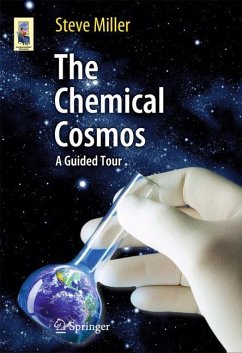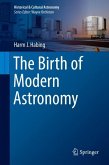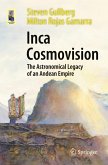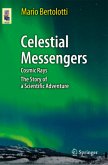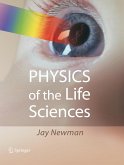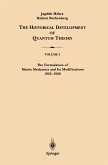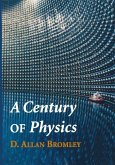If you have ever wondered how we get from the awesome impersonality of the Big Bang universe to the point where living creatures can start to form, and evolve into beings like you, your friends and your family, wonder no more. Steve Miller provides us with a tour through the chemical evolution of the universe, from the formation of the first molecules all the way to the chemicals required for life to evolve. Using a simple Hydrogen molecule - known as H-three-plus - as a guide, he takes us on a journey that starts with the birth of the first stars, and how, in dying, they pour their hearts out into enriching the universe in which we live.
Our molecular guide makes its first appearance at the source of the Chemical Cosmos, at a time when only three elements and a total of 11 molecules existed. From those simple beginnings, H-three-plus guides us down river on the violent currents of exploding stars, through the streams of the Interstellar Medium, and into the delta where new stars and planets form. We are finally left on the shores of the sea of life. Along the way, we meet the key characters who have shaped our understanding of the chemistry of the universe, such as Cambridge physicist J.J. Thomson and the Chicago chemist Takeshi Oka. And we are given an insider's view of just how astronomers, making use of telescopes and Earth-orbiting satellites, have put together our modern view of the Chemical Cosmos.
Our molecular guide makes its first appearance at the source of the Chemical Cosmos, at a time when only three elements and a total of 11 molecules existed. From those simple beginnings, H-three-plus guides us down river on the violent currents of exploding stars, through the streams of the Interstellar Medium, and into the delta where new stars and planets form. We are finally left on the shores of the sea of life. Along the way, we meet the key characters who have shaped our understanding of the chemistry of the universe, such as Cambridge physicist J.J. Thomson and the Chicago chemist Takeshi Oka. And we are given an insider's view of just how astronomers, making use of telescopes and Earth-orbiting satellites, have put together our modern view of the Chemical Cosmos.
From the reviews:
"The Chemical Cosmos: A Guided Tour is an astronomy book about chemistry - or perhaps a chemistry book about astronomy. ... well-structured and unifies a number of different elements of astronomy. Miller is careful to explain the technical vocabulary that you need to discuss the subject. The writing is clear and he has a light and humorous touch. ... I enjoyed reading the book and learned a number of new things. I think anyone with an interest in astronomy or chemistry would find it interesting." (BellaOnline.com, August, 2013)
"The book might well inspire A-level students or their teachers to see the Universe as a place with many very interesting chemistry problems." (Mike Edmunds, The Observatory, Vol. 132 (1230), October, 2012)
"This is another book aiming to summarize 13 billion years of cosmic history in relatively few pages. ... Recent discoveries of potentially life-supporting niches in the solar system, as well as the numerous recently discovered exoplanets, are described in broad strokes. The index and annotated bibliography are helpful, and the volume includes many rarely seen and well-chosen illustrations. Suitable for lay readers ... . Summing Up: Recommended. General audiences." (T. R. Blackburn, Choice, Vol. 49 (10), June, 2012)
"Steve Miller is a professor at UCL and an accomplished speaker at the RAS ... . He's written a book I'm pleased to recommend for its light touch and humour ... and, above all, for his willingness to explain. After a most enjoyable read, I had quite a bit to think about and there is a useful section of recommended further reading." (Roger O'Brien, Journal of the British Astronomical Association, Vol. 122 (1), 2012)
"The Chemical Cosmos: A Guided Tour is an astronomy book about chemistry - or perhaps a chemistry book about astronomy. ... well-structured and unifies a number of different elements of astronomy. Miller is careful to explain the technical vocabulary that you need to discuss the subject. The writing is clear and he has a light and humorous touch. ... I enjoyed reading the book and learned a number of new things. I think anyone with an interest in astronomy or chemistry would find it interesting." (BellaOnline.com, August, 2013)
"The book might well inspire A-level students or their teachers to see the Universe as a place with many very interesting chemistry problems." (Mike Edmunds, The Observatory, Vol. 132 (1230), October, 2012)
"This is another book aiming to summarize 13 billion years of cosmic history in relatively few pages. ... Recent discoveries of potentially life-supporting niches in the solar system, as well as the numerous recently discovered exoplanets, are described in broad strokes. The index and annotated bibliography are helpful, and the volume includes many rarely seen and well-chosen illustrations. Suitable for lay readers ... . Summing Up: Recommended. General audiences." (T. R. Blackburn, Choice, Vol. 49 (10), June, 2012)
"Steve Miller is a professor at UCL and an accomplished speaker at the RAS ... . He's written a book I'm pleased to recommend for its light touch and humour ... and, above all, for his willingness to explain. After a most enjoyable read, I had quite a bit to think about and there is a useful section of recommended further reading." (Roger O'Brien, Journal of the British Astronomical Association, Vol. 122 (1), 2012)

